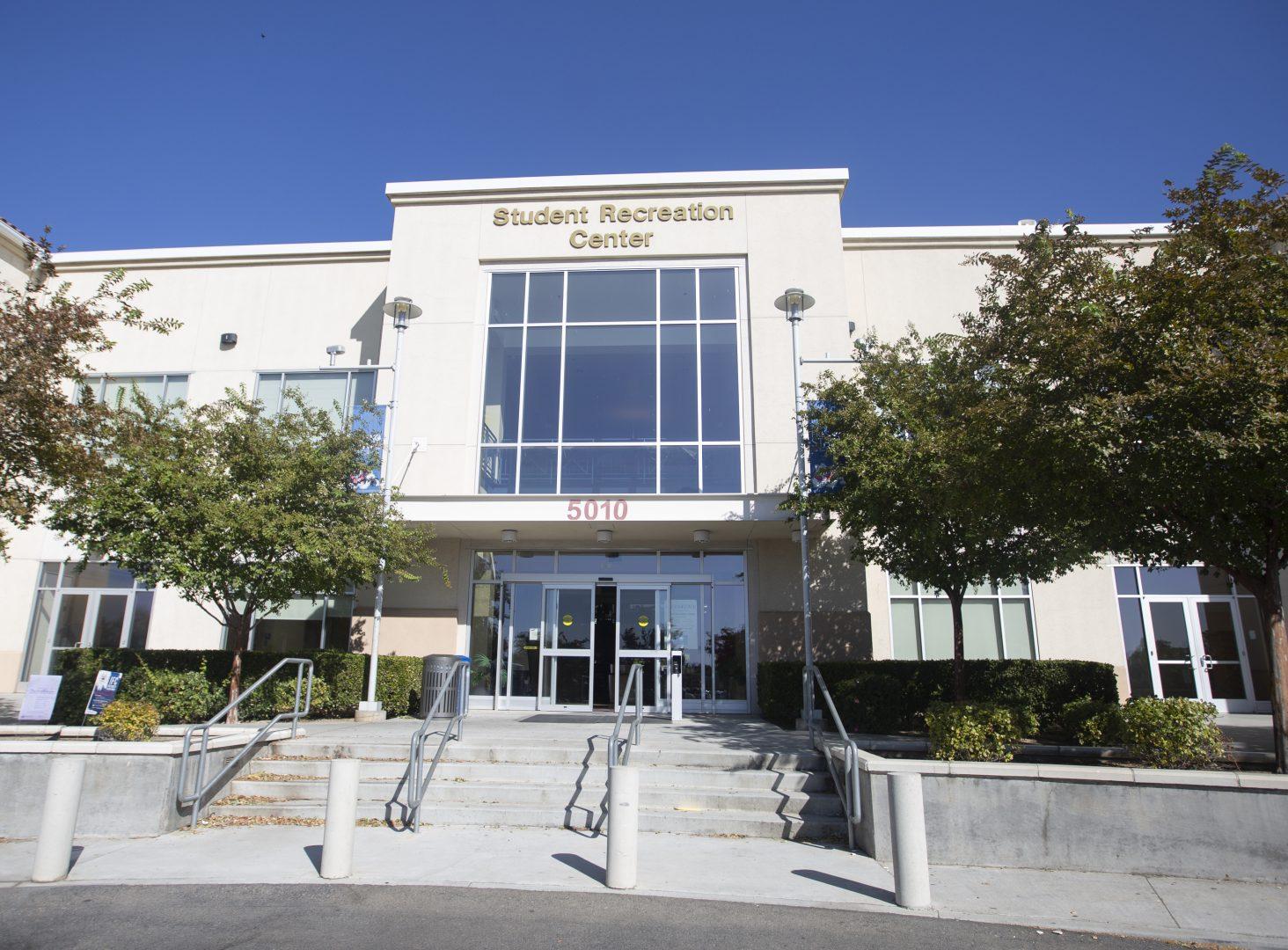Fresno State’s Student Recreation Center’s (SRC) gym is a place where students and faculty should be able to be comfortable in what they wear to work out and get into shape on their own terms.
However, a recent incident with Fresno State student brought to light a rule of women and men covering their torsos when entering the SRC, which seems to present a double standard of enforcement.
In an interview with The Fresno Bee, Mori said she was working out but she was asked by an SRC employee to cover herself up because her outfit, a sports bra and high-waisted leggings, broke one of the policies that the gym is required to enforce.
“A shirt covering the torso must be worn at all times in the fitness center, group fitness studios, racquetball courts, on the track, stretching areas and in the gymnasiums,” according to Fresno State’s official page for the SRC.
By wearing a sports bra alone, Mori did break this policy of not wearing an actual shirt, as she revealed two and a half inches of her midriff. But that’s not where the story ends.
After being approached and told to put a shirt on, Mori spoke to a female SRC supervisor and emailed director Derek A. Walters about the implications of only pointing out women who break this policy in the gym.
Showing one’s midriff does break a rule for which employees will speak to a student or faculty member in violation. But the policy is not solely directed at women. Men should also be asked to change their outfit if their torso is showing in the same way. But they’re not.
If both men and women were pointed out for this rule equally, Mori would not be filing a Title IX case against the SRC for the double standard that seems to enforce this rule primarily on women entering the gym’s facilities.
There is a problem to be seen when women are constantly being told by SRC employees to cover up while male students continue to work out, unbothered, in skinny tank tops that show their bare chests — which is also part of the torso. This loosely – and unequally – enforced policy clearly appears to only be stringent when it comes to condemning women for how much skin they are allowed to show.
Most people are familiar with the double standards of dress codes in high schools. Girls are
reprimanded and punished for showing too much skin that may distract boys, which further
normalizes the sexualization and objectification of these young girls.
Similarly, by enforcing this torso policy exclusively on women who wear crop tops, tied up shirts and tank tops, the embarrassment and body shaming again is directed solely toward women.
These women are not going to the SRC to be objectified and sexualized by their peers and employee members. They are going to the SRC to work out and focus on getting themselves in shape while feeling good about how they are doing so.
Being interrupted by SRC employees to cover themselves up, or even worse, having to leave the gym’s facilities because they don’t have a change of clothes proves that the SRC has an outdated policy that has become troublesome and problematic for female students.
A necessary update to the SRC’s rules and policies should be in place to allow students to wear what feels comfortable to participate in their workout routines.
If something doesn’t change, Fresno State will only continue to see how its policies on dress code and torso covering can appear to be sexist and demoralizing for students who earnestly go to the gym to be unbothered and exercise.
If a woman’s midriff is inappropriate, then so is a man’s chest.
In fact, in Mori’s interview with The Fresno Bee, she claims that men are often seen working out in tank tops that reveal their chests, sometimes even flashing their nipples while they lift weights, do floor exercises or spend time on various work out machinery.
They are often unbothered and rarely told to cover themselves up as they workout.
All that Mori is asking, in respect to all women, is that the same thing is offered to both genders to avoid this double standard of torso coverage and enforcement thereof. With the rule not specifying what the torso consists of when it was established in 2006, it’s only fair to ask that the policy be changed after 13 years to truly ensure that all students and faculty are being treated equally.
If the policy change isn’t seen as an issue or a problem to be discussed by the director and supervisors that operate and manage the SRC, then is Fresno State going to be able to adapt to new influences of feminism, equality and social standards that women are held to in future generations to come?




